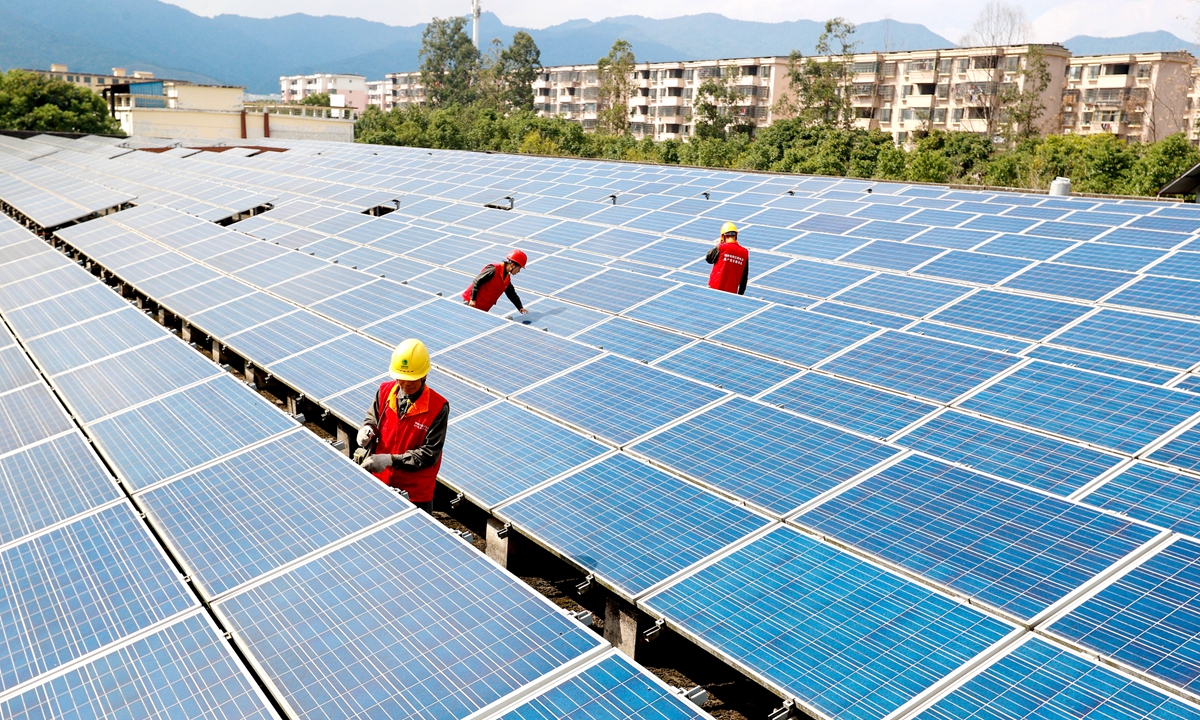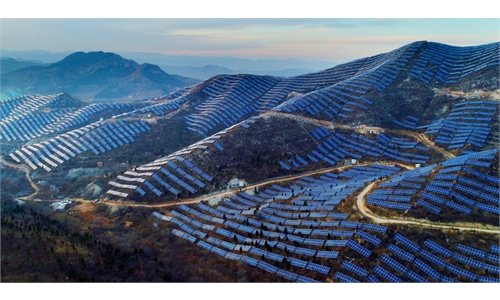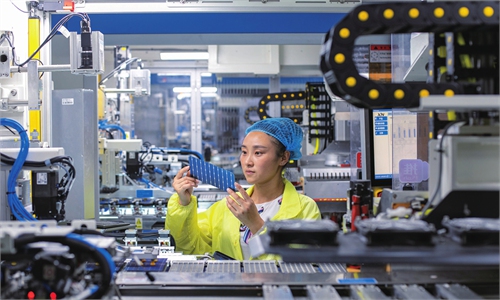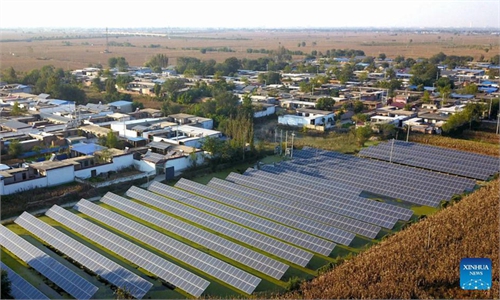US judge's rejection of tariffs on solar panels to boost cooperation with China: analyst

Workers install solar panels on the roof of an industrial building in Xiajiang county, East China's Jiangxi Province on October 25, 2021. The distributed solar power plant can generate electricity for industrial use or sell surplus power to the grid. Photo: VCG
A US judge's decision to drop a reimposition of tariffs on bifacial solar modules ordered by former US President Donald Trump will help enhance cooperation between China and the US in the solar power industry as well as efforts to tackle climate change, Chinese analysts said on Wednesday.
The move, while affecting not just Chinese products but those from other countries and regions, came after a virtual meeting between the top leaders of the two countries who stressed the need to cooperation, and after the two countries issued a joint declaration enhancing climate action at the COP26.
Imported bifacial (double-sided) solar panels were once again exempted from US Section 201 tariffs by a judge from the US Court of International Trade, effective Tuesday, according to a report by Solar Power World. The tariffs are down to 15 percent for this fourth year, and any imports from the past year under the adjusted 18 percent tariff are eligible for refunds with interest, according to the report.
Amid high inflation and a global supply chain crisis, US solar manufacturers would have had to bear the rising costs of making solar panels themselves if the country did not lower the tariffs, Wang Yongzhong, head of the Institute of World Economics and Politics under the Chinese Academy of Social Sciences, told the Global Times on Wednesday.
"As production and supply chains are suffering from disruptions, the Biden administration needs a large number of solar panels to realize its renewable energy goals," Wang noted.
More importantly, "the virtual meeting between top leaders of the two countries and their joint pledge to tackle climate change both showed an easing of bilateral relations," the expert stressed.
A source at a major Chinese solar company applauded the latest move. "It seems China and the US reached an agreement on climate goals," he said on condition of anonymity.
China and the US on November 10 released a joint declaration on tackling climate change during the COP26 in Glasgow, Scotland, including setting up a working group and reducing methane and CO2 emissions, a key step in global climate action.
The judge's decision was also hailed by a US solar advocacy group. The US Solar Energy Industries Association (SEIA), which participated in the petition, called it a "win for the solar industry."
"The decision by the US Court of International Trade to strike down an order by President Trump to change the step-down rate for the Section 201 tariffs and reverse the bifacial module exclusion was clearly the right conclusion. Both actions were an unlawful attempt to harshen the Section 201 tariffs," said Abigail Ross Hopper, president and CEO of the SEIA, in a statement published on Tuesday.
However, Wang said that the 15 percent tariff on imported solar panels remains, and he urged the Chinese solar industry to be cautiously optimistic.
"The two counties may have further talks about bilateral trade and investment. If they reach concrete deals, the solar panels will have bigger benefits," he said.




